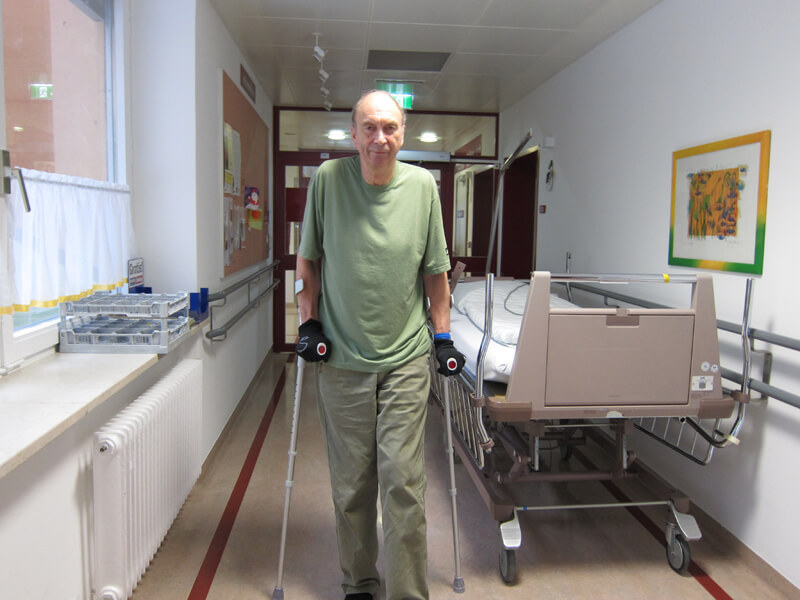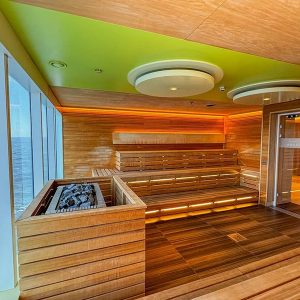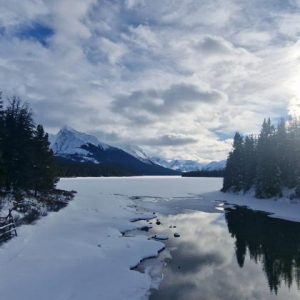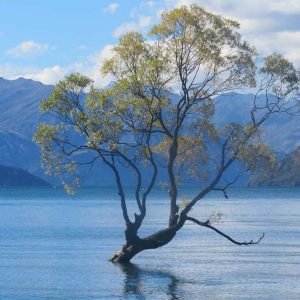I probably wasn’t supposed to hear the consultant as he discussed how to fix my Oberschenkelknochen: “Well”, he said in English, “no risk, no fun”. But I knew already that the coming operation would be a bit of a gamble. He had drawn me crude diagrams in chinagraph as I lay in the accident admissions room, a steep, L-shaped black line running through the neck of the bone, just below the hip’s ball and socket. Statistics showed the odds against that kind of break healing were not super-favourable. They day was just getting better and better. He might have to fit a metal hip. If he needed to do so during the procedure, did we have a “gentlemen’s agreement” that he could go ahead? “After all, I can’t wake you up and ask you”. I agreed — not that I had much choice.
The morning had begin with such promise. Sparkling sunshine, fresh snow and sub zero temperatures. As we waited to jostle aboard the Rüfibahn cable car, in the Austrian resort of Lech, my wife and I were full of anticipation that this would be a great day’s skiing. The first few runs, mostly steepish reds, were a delight. I was skiing steadily. Everything was working. Then, in second or so of lost control, life for the next three months changed drastically. It happened on a sharp left turn. I think my right ski hit a ridge of new snow while the left slithered on ice. The net effect was to dump me hard on my left hip.
I had been skiing since 1966, with more falls than Norman Wisdom. It would be all right in a minute, I told my wife. But it wasn’t. Tried to get up, stabbing pain. A passing ski instructor called for an Akia – the sledge-cum-stretcher used to ferry injured skiers off the slopes. In the ambulance I was presented with the first bill – for €130 to cover the mountain rescue and transport to the clinic in Lech. Please let it be just a pulled muscle and a bruise, I though top myself. But no, the X-ray clearly showed a fracture. En route to hospital, 60 kilometres away in Feldkirch, and another £400-plus poorer, I was reminded of that old definition of yachting: standing on deck in a gale with a handful of £50 notes and watching the wind whip them away. By now, however, I was beyond caring.
 The morning after the op there was sunnier news. The doctor said there was a fair chance the leg would be good as new. My bone density – thanks to a lifetime’s running – was good for my age. No weight bearing on the leg for 12 weeks and then nature would take its course. I lay awake at night wishing we had turned left onto a different piste. Such are the tiny decisions that alter your horizons.
The morning after the op there was sunnier news. The doctor said there was a fair chance the leg would be good as new. My bone density – thanks to a lifetime’s running – was good for my age. No weight bearing on the leg for 12 weeks and then nature would take its course. I lay awake at night wishing we had turned left onto a different piste. Such are the tiny decisions that alter your horizons.
Then there were all the logistical problems to solve. My wife decided to check out of our Lech hotel and book a room at the Alpenrose, a 20 minute walk from the hospital. But there was no way we would be able to cope with skis and boots as well as bags, so she asked the front desk in Lech if the former could be stored there. We may pick them up this summer. A call to the medical emergency service allied to our insurance company set repatriation in motion. While changing wallets I had left my European Health Insurance Card in a bedside drawer. Do not make this mistake. Though a relative went to my house and faxed all the details, the hospital administration demanded to see a copy of the card itself. Bureaucratic nonsense, I snorted, eventually eliciting an agreement that I could fax a copy of it when I got home.
Ever been on crutches? At first it’s not easy. My confidence was hardly boosted when a physiotherapist told me I would need to be able to walk about 500 metres before attempting the negotiate stairs. Next morning, bewilderingly, a different physiotherapist bounced into the ward and ask if I was ready – to try some stairs.
The homeward journey was as smooth as could be. Taxi to Zurich Airport, a spare seat on a British Airways flight to Heathrow, a wheelchair off the aircraft to another taxi – and only a couple of steps to hop up into the front hall at home.
A frustrating three months awaited – but it hadn’t been all gloom. The nursing staff, quick to respond to calls for help day or night, had been wonderful. Though there was no wi fi in the hospital I discovered I could download a British newspaper on my Kindle. And my German improved. Before setting out on a trip to Germany last year I had decided to download the full English – German/German-English Collins dictionaries. These proved invaluable, not least for the translation of Oberschenkelknochen. Not the longest word in German but the longest bone in the human body. It means femur.











